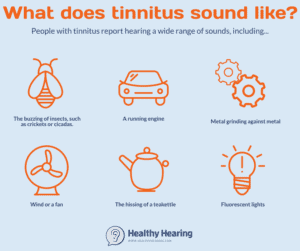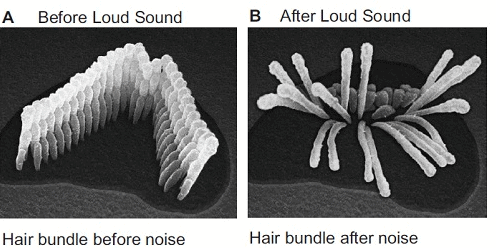Imagine if: The next sound could limit your ability to hear…

The next sound could limit your ability to hear, forever! Rumble music from a car radio. Headphones cranked at 90 or more decibels. Motorcycles’ scroooms. VoiceYells, all in the pitch of LOUD. Jackhammer jabs. Carpenter saw whines.
Those who may be limited in their hearing later in life include drivers in high-traffic areas, teachers, construction workers, firefighters, farmers, carpenters, rock and classical musicians, truck drivers, refuse collectors, airport ground staff, using a lawnmower, motorcycle riders, race car drivers and pit crew, watching sports in loud stadiums. Take any one of these situations, and the hair cells in your inner ear will be blown into a death spiral.

If you need stats, The National Institute of Deafness and Other Communication Disorders (NIDCD) notes that 15% of adults, 18 and up, report some degree of hearing loss. And 28.5 million of U.S. adults could benefit from wearing hearing aids, and most of us from wearing ear protection in loud situations. www.nidcd.nih.gov
Our hearing apparatus tries valiantly to compensate, and gradual loss is not always apparent. We develop coping strategies — we pretend we’ve heard what’s been said. Then a holiday rolls around (post-COVID), or friends gather, and you realize you can’t follow a conversation. You catch snatches of words here and there, and try to verify later with a friend what was said. Cell phones are not our best friend anymore. Zoom meetings transmit some voices well, while it’s a strain to understand others. We don’t catch every exchange, and we’re too embarrassed to ask for a repeat of what was said. At day’s end, we’re exhausted.
In some situations, earplugs can minimize the decibel impact on the tiny hair cells in our ears.
Putting off getting hearing assistance is a fool’s errand

Don’t let vanity get in the way of consulting with a certified audiologist. Identifying hearing loss early can provide hearing aids options within your price range. When shopping for health insurance, try to find a plan that provides hearing aid coverage. Hearing aids are an investment in adding back richness to your work life, conversations with family and friends, and pursuing hobbies that require listening and conversation.
A doctor of audiology can discern the degree of hearing impairment in each ear and make operational adjustments, so each aid is built to amplify sounds for each ear. Ask about a payment plan. Once you have hearing aids, wear and clean them regularly.
Even with very good hearing aids, sounds and meaning are a matter of adjustment. A hearing aid amplifier can boost your ability to understand variance in voices and sounds.
What does not help those who don’t hear as well (even with hearing aids):
- Talking too low and too fast
- Yelling (speak in a moderate voice)
- Not looking at the person who has hearing issues
- A ping-pong conversation, where there’s no time to process
- Background music in shops or restaurants
- Not checking in to see if they are tracking the conversation
- Navigating online service calls
- Long phone conversations
- In group settings, not using a microphone so those in every part of the room can hear
- Not to offend, but rap songs that are meant to be sung in rhyme and fast, the hard-of-hearing perceive as a word pile-up.
Young people and adults have an opportunity to protect their hearing by using earplugs in noise pollution situations. Try these hearing tests from the Centers for Disease Control: https://www.cdc.gov/nceh/hearing_loss/infographic/

One more hearing loss culprit: tinnitus, a constant, low-frequency buzzing, ringing, chirping, or whooshing sound that detracts from hearing conversations and concentration. For 15-20% of the U.S. population, tinnitus is a everyday annoyance. Tinnitus can be age or noise-related, the result of inner ear obstructions (i.e. earwax build-up), head or neck trauma, or sinus pressure and change in barometric pressure. The low-frequency sound is often constant – background noise only you can hear.
Those with tinnitus are encouraged to find ways to manage their ear noise. The American Tinnitus Association recommends physical activity that can draw attention away from ear noise. Continuing social exchanges is a must for maintaining emotional health. Prime friends and family to speak up so their words overpower the inside sound. Choose muffling apps or devices from companies that understand how to mitigate this condition. www.ata.org
So, imagine if the next noise you hear, you muffle loud sound waves that assault your inner ear. Carry ear protection. Curb your desire to crank the

music up. Avoid crowded, high-volume situations when possible. Advocate against noise pollution. Those little hair cells want to stay upright as long as possible.
Share your hearing strategies (initials only) here.
